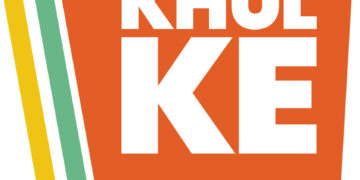Ahmedabad, 4thAug.2021: Coutloot, India’s largest offline-to-online (O2O), social commerce platform, has taken 500,000 offline retail stores, based in the smaller cities of India, online. It has achieved this milestone in just 24 months, and continues to host 120,000 active stores monthly, with over 15 million listings. Coutloot’s top sellers, with the highest growth rates, are from cities and towns such as Nagaon (Assam), Basai (Gurugram), Korba (Chhattisgarh), Surat (Gujarat), and Ludhiana (Punjab).’
Coutloot Co-founderJasmeetThind says, “India’s non-mrp market is humongous and was hardly sold online, until now. We’ve not tried to reinvent the wheel but have brought local sellers from main markets of small cities and got them to sell to customers the same way they do it offline”
Coutloot Co-founderMahimaKaul says, “This is just the beginning of local commerce going online. E-commerce is still in its early days in India, and two-third of it is dominated by marketplaces. But the reality is that e-commerce penetration is only around 10percent.CoutLoot creates trust between sellers and buyers while empowering them to take offline transactions online.”
Coutloot’s aim is to recreate the trust-based, non-fixed-price, unbranded local marketplace (apparel, electronics, home decor, groceries) that 75 percent of India sells and buys in.
Coutloot is a #vocalforlocal Indian startup. Coutloot’s business model of social commerce is the opposite of predatory practices that e-commerce giants often draw flak for. Coutloot has been downloaded over 7.2 million times and is ranked among the Top-30 apps on app stores.
Over 70 percent of Coutloot’s 400,000+ sellers are from India’s small towns, and its seller retention rate is 42 percent quarterly. Coutloot has seen over 200,000+ monthly products getting sold-out in fashion, lifestyle, home decor and electronics. Unbranded fashion, including shoes and apparel, is the largest category on Coutloot.
Small-town offline, mom-and-pop and home sellers never had such an enabling platform before, as larger e-commerce platforms have always charged a hefty commission and also dealt with large sellers and resellers mostly. Not for nothing, Coutloot has sold over ₹150 crores worth of products from its sellers between January and July, this year.
Coutloot’s mantra for O2O social commerce is to grow such sellers. Coutloot knows an online platform, like Shopify, alone won’t get the small-town offline, mom-and-pop and home sellers active in selling online. Coutloot handholds sellers to make that elusive first sale online. The seller-success rate (percentage of sellers who have got orders) is as high as 62 percent, because of this focus.
Once the sale is done, Coutloot then services the transactions with supply-chain support, AI-based automatic cataloguing, payments tech, and by driving further customer acquisition.
“Coutloot’s business model attempts to fix the broken sales and supply chain in unbranded retail and sales in loose groceries,” adds Jasmeet.
Coutloot’s sellers are making upto ₹8 lakh a month, with the average seller earnings (profits) growing from ₹3,000 in January, 2020 to ₹14,000 a month in July, 2021.
Growing the ecosystem of offline sellers migrating online from India’s nooks and crannies will benefit not only Coutloot but other e-commerce platforms and consumers themselves. Because most of India (75 percent) are still used to hyperlocal markets where bargaining rules supreme in determining the final transactions.
Coutloot provides the feature of bargaining, not seen on any other ecommerce platform. Buyers can bargain with sellers for a closer look at the product and for handsome discounts on the final price. Coutloot’s buyers have gotten as high as 43 percent off on products sold by its sellers.
Coutloot is revolutionising online shopping with patterns seen in local shops and with street hawkers. What’s more, buyers can bargain in their own desi language, as Coutloot supports chatting in vernacular languages. The hyperlocal, trust-based shopping experience is brought online. Traditional e-commerce platforms like Amazon and Flipkart are yet to bring this in.




































